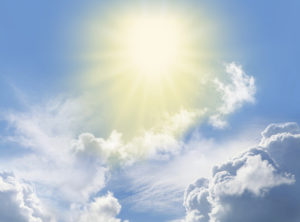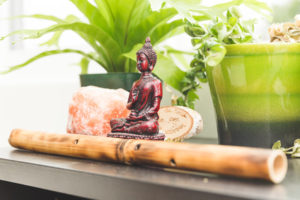 We have discussed how most spiritual and religious traditions teach that there is a Creative Principle which created and sustains the universe, and that you are essentially a spiritual being, rather than the physical body which you just happen to be inhabiting at this point in time. The Immortality Principle follows quite naturally from those ideas, and states that, because you are a spiritual being, you are also an immortal being.
We have discussed how most spiritual and religious traditions teach that there is a Creative Principle which created and sustains the universe, and that you are essentially a spiritual being, rather than the physical body which you just happen to be inhabiting at this point in time. The Immortality Principle follows quite naturally from those ideas, and states that, because you are a spiritual being, you are also an immortal being.
When people think of immortality, they tend to think of something that continues forever into the future, but the word also implies an unbroken line of existence into the past as well. In other words, according to this principle, not only will you continue to exist after the death of your physical body, but you, as spirit, also existed long before the birth of that physical body.
Whilst most traditions teach the continuation of life after death in some form, there are fewer which teach about life before birth. The Hindu tradition is one of the most vocal of the latter group, teaching that a spirit is reborn into physical experience over and over again – a teaching which is referred to as reincarnation. In that belief system, therefore, life after death means another life in physical form, until such point that the spiritual essence transcends the need for physical embodiment.
In traditions which do not teach the idea of reincarnation, or its Buddhist cousin, rebirth, the immortality focus tends to be on the afterlife. Ideas differ as to exactly what such an afterlife might look like, and there as many descriptions of heavens, hells and purgatories as there are spiritual traditions.
The Immortality Principle might sound far-fetched, but when you think about it rationally, it is perhaps one of the easiest principles to accept, as I will now attempt to explain…
Even if a person does not accept that they are a spiritual being, believing instead that they are nothing more than a physical body, the organic matter which makes up that body is something which will always exist in one form or another.
This is a completely scientific statement, and in is full agreement with the first law of thermodynamics, which states that energy can neither be created nor destroyed, but only changed from one form to another. It therefore doesn’t matter if a physical body is buried, cremated or otherwise ‘disposed of’ – the organic matter may change form, but it will never be destroyed.
Of course, some will argue that they are not simply the organic matter which makes up their physical body, but that they are the personality or consciousness which animates it. In that case, I would refer such people back to my post on The Spiritual Principle, which said that consciousness could well be the very same thing which spiritual traditions refer to as the spirit.
If a man views himself purely as a physical body, then his physical matter will remain in this world forever. It will degrade and change form over time, but the atoms which currently comprise his body will always be here in some form, and so it can be said that he is immortal.
If a man views himself as the consciousness which animates his physical body, then he should ask himself where that consciousness is actually located, and consider whether or not it too is subject to the first law of thermodynamics. If he says that consciousness has physical attributes then it will, like the atoms of the body, continue existing in some form for the rest of time. And if he says that the consciousness is a non-physical thing, then he is effectively saying that he is what we are referring to as a spiritual being. Either way, he would find it very difficult to maintain on any rational basis that he is anything less than immortal.
In my previous post I likened the spirit to the helium in a balloon, and the physical body to the fabric of the balloon shell. If one views ‘death’ as the popping of the balloon, it is obvious that the fabric will wither and eventually degrade, but it will still remain part of the physical universe. At the same time, the helium which made it possible for the balloon to float during its ‘life’ will not simply vanish, but will instead merge quite naturally with the greater atmosphere.
One could view human ‘death’ in much the same way, with the flesh-and-blood suit being left to decompose (although never truly disappearing) whilst the spiritual essence simply moves on to some ‘next stage’ of existence.
In closing for the time being, I would encourage you once again to give this topic your careful consideration. The following prompts may prove helpful:
– What are your current beliefs about immortality?
– How do your views on this topic influence the way you view and experience your current life?
– How would being more mindful of your immortal nature – in whatever way fits your current paradigm – change your experience?
Have your notebook at hand when you consider these questions, and be sure to write down your intuitive responses as you do so.
 The Spiritual Principle states that there is more to you than flesh, blood and bones. According to this principle, you are not merely a physical creature who just happens to have spiritual interests and inclinations, but you are in fact a spiritual being who is currently having a physical experience.
The Spiritual Principle states that there is more to you than flesh, blood and bones. According to this principle, you are not merely a physical creature who just happens to have spiritual interests and inclinations, but you are in fact a spiritual being who is currently having a physical experience. Some of the biggest questions that we ask about life concern the origin and nature of the universe in which we find ourselves. Did the universe arise by chance, as a result of exactly the right elements coming together in exactly the right way at exactly the right point in time after the big bang, eventually producing organic life as its offspring? Or was there some kind of intention behind the creation of the universe and the subsequent arrival of organic life, and if so, who or what was the origin of that intention, and does it continue to exist?
Some of the biggest questions that we ask about life concern the origin and nature of the universe in which we find ourselves. Did the universe arise by chance, as a result of exactly the right elements coming together in exactly the right way at exactly the right point in time after the big bang, eventually producing organic life as its offspring? Or was there some kind of intention behind the creation of the universe and the subsequent arrival of organic life, and if so, who or what was the origin of that intention, and does it continue to exist? There are a number of spiritual principles that are common to multiple paths and traditions, and when similar ideas crop up again and again, it makes a great deal of sense to explore them further. To assist you in that effort, over the next few weeks I will highlight some of the main ‘universal spiritual principles’ that can be found in multiple belief systems, both ancient and modern.
There are a number of spiritual principles that are common to multiple paths and traditions, and when similar ideas crop up again and again, it makes a great deal of sense to explore them further. To assist you in that effort, over the next few weeks I will highlight some of the main ‘universal spiritual principles’ that can be found in multiple belief systems, both ancient and modern. Seekers can conduct their daily spiritual practice anywhere, but you may want to consider creating a sacred space in your home or office which is specifically set aside for the purpose. Reading, journaling and meditating in the same location on a regular basis can make that place one which quite naturally evokes a sense of calm and quiet, and serves as an oasis of peace and stillness no matter how busy or hectic the rest of your life may be.
Seekers can conduct their daily spiritual practice anywhere, but you may want to consider creating a sacred space in your home or office which is specifically set aside for the purpose. Reading, journaling and meditating in the same location on a regular basis can make that place one which quite naturally evokes a sense of calm and quiet, and serves as an oasis of peace and stillness no matter how busy or hectic the rest of your life may be.